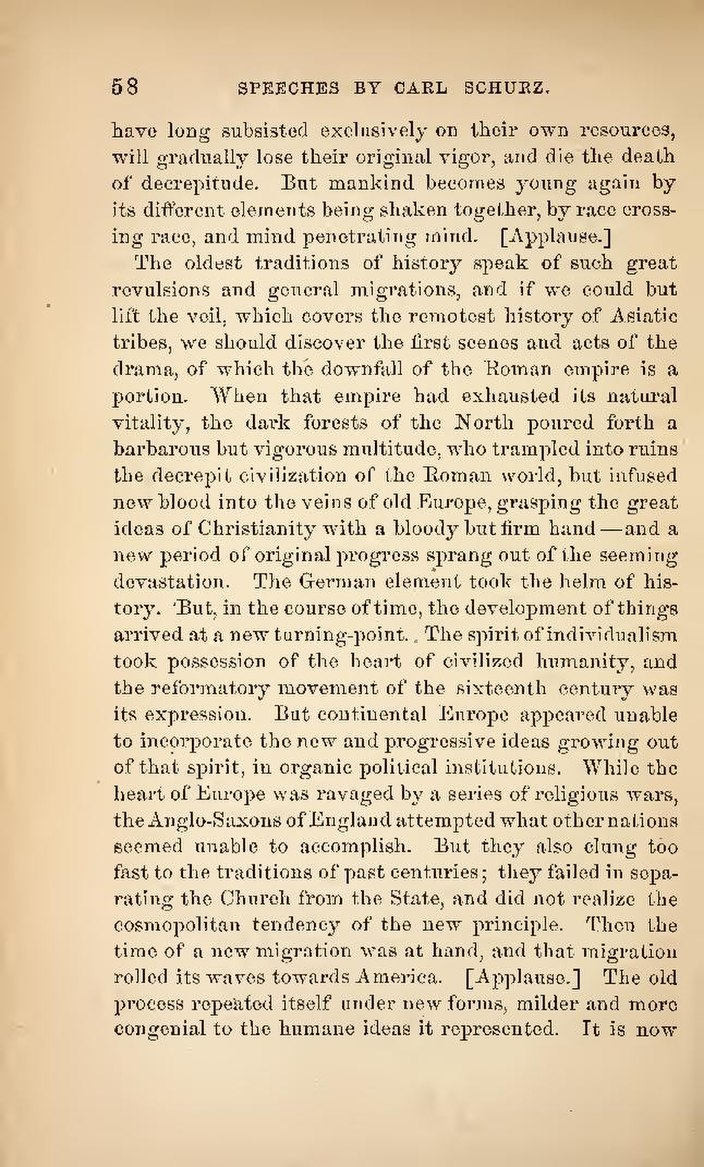have long subsisted exclusively on their own resources, will gradually lose their original vigor, and die the death of decrepitude. But mankind becomes young again by its different elements being shaken together, by race crossing race and mind penetrating mind. [Applause.]
The oldest traditions of history speak of such great revulsions and general migrations, and if we could but lift the veil, which covers the remotest history of Asiatic tribes, we should discover the first scenes and acts of the drama, of which the downfall of the Roman Empire is a portion. When that empire had exhausted its natural vitality, the dark forests of the North poured forth a barbarous but vigorous multitude, who trampled into ruins the decrepit civilization of the Roman world, but infused new blood into the veins of old Europe, grasping the great ideas of Christianity with a bloody but firm hand—and a new period of original progress sprang out of the seeming devastation. The German element took the helm of history. But, in the course of time, the development of things arrived at a new turning-point. The spirit of individualism took possession of the heart of civilized humanity, and the reformatory movement of the sixteenth century was its expression. But continental Europe appeared unable to incorporate the new and progressive ideas growing out of that spirit, in organic political institutions. While the heart of Europe was ravaged by a series of religious wars, the Anglo-Saxons of England attempted what other nations seemed unable to accomplish. But they also clung too fast to the traditions of past centuries; they failed in separating the Church from the State, and did not realize the cosmopolitan tendency of the new principle. Then the time of a new migration was at hand, and that migration rolled its waves towards America. [Applause.] The old process repeated itself under new forms, milder and more congenial to the humane ideas it represented. It is now
